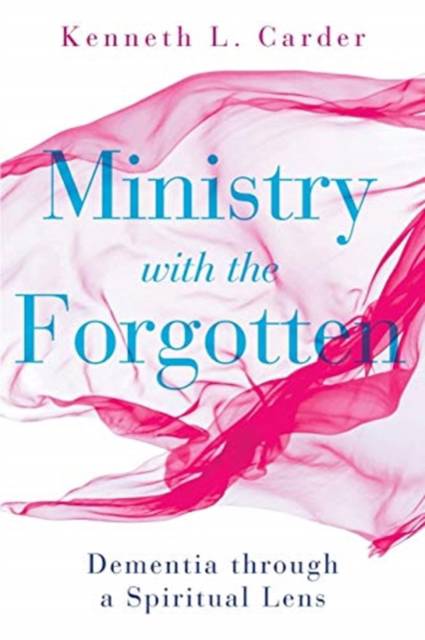
- Retrait gratuit dans votre magasin Club
- 7.000.000 titres dans notre catalogue
- Payer en toute sécurité
- Toujours un magasin près de chez vous
- Retrait gratuit dans votre magasin Club
- 7.000.0000 titres dans notre catalogue
- Payer en toute sécurité
- Toujours un magasin près de chez vous
Ministry with the Forgotten
Dementia Through a Spiritual Lens
Kenneth L Carder, Kenneth H Carter
Livre broché | Anglais
27,95 €
+ 55 points
Description
Dementia diseases represent a crisis of faith for many family members and congregations. Magnifying this crisis is the way people with dementia tend to be objectified by both medical and religious communities. They are recipients of treatment and projects for mission. Ministry is done to and for them rather than with them. While acknowledging the devastation of dementia diseases, Ken Carder draws on his own experience as a caregiver, hospice chaplain, and pastoral practitioner to portray the gifts as well as the challenges accompanying dementia diseases. He confronts the deep personal and theological questions created by loving people with dementia diseases, demonstrating how living with dementia can be a means of growing in faith, wholeness, and ministry for the entire community of faith. He also reveals that authentic faith transcends intellectual beliefs, verbal affirmations, and prescribed practices. Carder asserts that the Judeo-Christian tradition offers a broader lens, defining personhood in relationship to God's story and humanity's participation in God's mighty acts of creation and new creation; thereby contributing to hope, community, and self-worth. Pastors and congregations will be better equipped to minister with people affected by dementia, receiving their gifts and responding to their unique needs. They will learn how people with dementia contribute to the community and the church's life and mission, discovering practical ways those contributions can be identified, nurtured, and incorporated into the church's life and ministry. From the Foreword: "Bishop Carder has written a generously wise book that is a gift to the church and a healing resource for people living with dementia and all who walk with them and alongside them. Those who are seeking a book on pastoral care and dementia will find here a wealth of theological insight, practical recommendations, and reflections that are grounded in deeply lived experience. But this is not simply a book about living with dementia or caregiving for those who live with dementia, nor simply a book about pastoral care. It is rather a testimony from the wilderness, a memoir of 'trust-end-faith.' It is a book about what it means to be a disciple of Jesus Christ in our modern, technological world. It is a book about what it means to be known and loved by God, full stop. It is a book about what it means for love to endure, when all else fails." -Warren Kinghorn, MD, ThD; Associate Professor of Psychiatry, Duke University Medical Center; Esther Colliflower Associate Professor of the Practice of Pastoral and Moral Theology, Duke Divinity School, Durham, NC
Spécifications
Parties prenantes
- Auteur(s) :
- Editeur:
Contenu
- Nombre de pages :
- 192
- Langue:
- Anglais
Caractéristiques
- EAN:
- 9781501880247
- Date de parution :
- 17-09-19
- Format:
- Livre broché
- Format numérique:
- Trade paperback (VS)
- Dimensions :
- 152 mm x 226 mm
- Poids :
- 226 g

Les avis
Nous publions uniquement les avis qui respectent les conditions requises. Consultez nos conditions pour les avis.






